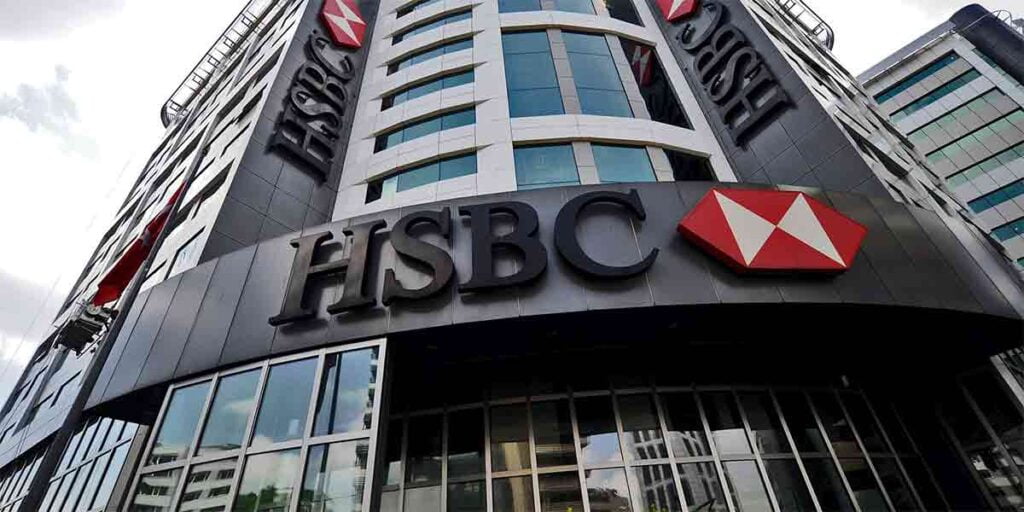HSBC, Europe’s largest bank has reported a 92% surge in profits, largely driven by rising interest rates, which resulted in net interest income growth. However, the bank’s shares fell by 2%, as it failed to meet a key performance target, even as it announced a dividend and share buyback program for investors.
The London-headquartered bank (HSBA.L) announced on Tuesday that it plans to pay a special dividend of $0.21 per share, using the proceeds from the $10 billion sale of its Canada business, which is expected to complete by the end of this year.
However, some analysts had anticipated that HSBC would raise its key performance target, which was set to achieve a return on tangible equity of at least 12% from this year onwards. Although the bank stuck to this target in its earnings report, analysts had predicted that it would be raised. As a result, its Hong Kong shares fell by 2.1% by 0540 GMT.
HSBC has been disposing of assets more rapidly in the last year, as it faces pressure from its largest shareholder, Ping An Insurance Group, which has pushed for the bank to split off its Asian business to boost returns. However, HSBC has resisted this move.
Group Chief Executive Noel Quinn has stated that “With the delivery of higher returns, we will have increased distribution capacity, and we will also consider a special dividend once the sale of HSBC Canada is completed.”
Also Read: Basic Income – How to Get $6,000 in Cash for a Year
HSBC has also announced that it still expects to complete the sale of its Russia business in the first half of 2023, at a loss of $300 million.
HSBC’s London-listed shares, which are currently trading at their highest level in around three and a half years, have rebounded by 45% from their October 2022 lows, which were caused by a drop in quarterly profits and a sudden change in its chief financial officer. However, since Noel Quinn took charge in March 2020, the shares have risen by 25%, underperforming a 50% rise in the broader market. This year, the shares have risen by 20%, compared to a 7% rise in the FTSE index (.FTSE).
Noel Quinn has overseen job cuts in recent years aimed at streamlining the bank’s management structure. He has stated that there will be no easing off on costs, and the bank is considering an additional $300 million of severance costs in 2023.
The bank, which is focused on Asia and has Hong Kong as its biggest market, has also announced that it will resume quarterly dividends in 2023, and the consideration of new share buybacks will be brought forward to the first quarter of 2023.
HSBC reported pretax earnings of $5.2 billion for the fourth quarter, up from $2.7 billion a year earlier, and ahead of the average estimate of $4.96 billion compiled by analysts.
However, the bank’s expected credit losses for the year rose to $3.6 billion, more than the $3.2 billion estimated by analysts, due to inflation pressuring borrowers and issues in China’s property market.
Also Read: How To Choose The Best Bank Account For Your Needs
Despite the surge in the fourth quarter, HSBC’s annual profit fell to $17.5 billion from $18.9 billion in 2021, due to an impairment of $2.4 billion related to the sale of its retail banking operations in France. This matches the average estimate of $17.5 billion compiled by 22 analysts.
